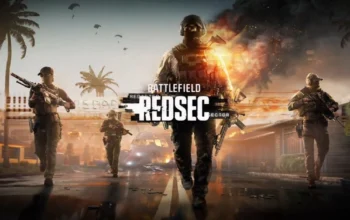In our Pixel Sundays article this week we talk about the largest strategy franchise in history. It is about the grand strategy series from Paradox Interactive with a historical focus and great depth. Of course, we are talking about Europa Universalis, a game that simulates hundreds of years of history.
Summary
The story of Europa Universalis (EU) is long, and not only the story you simulate in the game itself, but also the story of the franchise. In just a few days, the latest game in the series, Europa Universalis 5, will be released with even more depth and a longer time span than its predecessor. Here you will learn everything about the franchise and of course EU5.
Origin and early games – From board game to video game
The Europa Universalis franchise did not start with a video game. The first was a geopolitical strategy board game by Philippe Thibaut from 1993. The game covers the time period from 1492 to 1792. It was designed for six players, but there were also variants for five players. The game had one of the most extensive rulebooks; the English translation had 154 pages and a playtime that could last several days or even weeks. Each player represented a European great power such as Spain, France, England, the Ottoman Empire, Portugal or Russia, Venice or Holland, and each nation had its own special rules, events, and victory conditions.
Then Paradox Development Studio acquired the rights to the game and released the first video game version of Europa Universalis in 2000. The game was based on Philippe Thibaut’s board game. It also covered the period from 1492 to 1792. The game is not turn based but runs in real time unless you press pause. You can take control of one of several European powers and expand your influence through colonization, trade, diplomacy, technology, and military action. The map is divided into about 1,500 provinces with hidden “terra incognita” that must be explored through colonization.
At the beginning of the game, you choose a European nation and take its leadership. You manage the country’s diplomacy, trade, warfare, and technology. Through colonization and exploration, you can discover and settle new territories. With technology and trade mechanics, you can increase your economic growth and influence. There is also religion, which can cause unrest and affect your nation’s stability.
With Europa Universalis, Paradox laid the foundation for the brand and proved that historically oriented grand strategy games have a place in the market. Turning such a complex board game into a computer game was an ambitious plan at the time, but Paradox succeeded brilliantly. They focused on depth and marked the beginning of a long series of titles.
![]()
Main series and milestones – Europa Universalis II, III, IV
Now let’s take a quick look at all the previous mainline games, focusing on new features and major changes. Europa Universalis II was released in 2001 and covered the time from 1419 to 1820. In this game, you can choose from over a hundred nations and not just the great powers. Religion, culture, and their conflicts also became visible features. New scenarios such as the Age of Discovery and the American Revolution were added.
Compared to its predecessor, the game’s scope was greatly expanded with more nations, more freedom, and stronger inclusion of less central regions. The tutorials were also improved, resulting in a steeper learning curve due to the game’s complexity. Religions such as Buddhism, Confucianism, and Hinduism were introduced, giving the game a more global setting. It also became harder to dominate the world easily.
![]()
Then came Europa Universalis III in 2007. The standard version covers the period from 1453 to 1789. With the Napoleon’s Ambition expansion, it extends to 1821, and with Nomine it starts at 1399. The game includes even more playable nations with over 250, all historically accurate. There are about 1,700 provinces including sea zones. The game also introduced government systems, national ideas, and inflation.
The game introduced the Clausewitz Engine by Paradox. The map became 3D and much more technical than before. You can make even more decisions and have greater freedom in your gameplay. The game also made it easier to edit text files, which led to an active modding community. Many mods became very popular as a result.
Europa Universalis IV is the latest title released. The game came out on August 13, 2013. It typically starts in 1444 after the Battle of Varna and ends in 1821, but you can theoretically start at any point in time. There are over 800 historically existing nations and more formable ones. The game features a new 3D map, expanded diplomacy, and a reworked trade system.
![]()
EU4 uses the Clausewitz Engine 2.5, providing modern technology and improved stability. The game focuses mainly on quality, accessibility, and stability. Paradox emphasized that the launch should be more stable than its predecessors. The game received new DLCs and updates until May 2024, bringing new mechanics and changes to certain nations to make them more historically accurate.
EU4 also introduced a new mission system, which presented players with historical goals for their country. This gave every nation a clear direction to work toward. The game received very positive reviews. While it was difficult to get into due to its complexity, it felt highly rewarding for players.
There was also a spin-off called Europa Universalis: Rome released in 2008. It is not part of the main series but still worth mentioning. The game focuses on the era of the Roman Empire. Paradox used it to show that their concept could extend further with this new variation. However, the game was not as well received by players and critics, so it is mentioned less often.
![]()
Mechanics, Innovations and DLC model in EU4
Let’s now talk in more detail about the mechanics in Europa Universalis 4. Since there are so many, it is hard to know where to begin, but let’s start with diplomacy. As your chosen nation, you can form alliances, create vassals, have tributary states, exert influence, and much more. Without allies, you are usually in trouble and will be overrun in wars.
You can start wars with other countries once you claim a right to do so, allowing you to gain more land, gold, or power projection. However, you cannot simply take an entire large country for yourself in one war, as this would make your neighboring states uneasy and could lead to a large military coalition against you. In battle, there are different unit types (infantry, cavalry, and artillery) that work together. Battles also involve dice rolls, meaning luck plays a small role too.
![]()
Another feature is religion, as large religious wars occur later between Protestants and Catholics as well as crusades of the Catholic Church. You can convert other nations to your religion and gain bonuses for your faith. There are features like papal elections and religious reforms that affect all followers of the same faith. In addition, an institution system was introduced: if you have high development and technological progress, new institutions may appear in your country. These make research cheaper and eventually spread to other nations over time.
And this is just the tip of the iceberg, because there is much more. It clearly shows an incredible depth of gameplay, which can also be a barrier for newcomers. To truly understand many of the game’s systems, you can easily invest 100 hours and still not know everything. Much is not explained directly in the tutorial; players have to figure it out themselves or use the wiki. But of course, no one wants to read 154 pages of instructions, so some questions remain unanswered.
In this game, you cannot just act strategically in the short term, you must set goals and plan over centuries. You have to develop certain provinces, make technological progress, and increase your global influence. A war is not necessarily decisive for the outcome of the game. Overall, it has a high learning demand, but the reward is great because you constantly improve. Due to the depth of the game, you can play it for thousands of hours without it getting boring since there are always new challenges waiting for you.
![]()
An important aspect in EU4 is the business model, as over the years the game has received more than 74 expansions, over 20 of which add new content and mechanics to the game such as events or historical changes for nations. Some only change the appearance and some provide QoL updates like an improved production menu. However, all these DLCs together are quite expensive, which is why Paradox introduced a new subscription model in March 2021. With it, you can simply rent all DLCs. Initially, it cost 5€ per month, but the price has since increased to 8€ monthly. If you rent the DLCs for a longer period, it becomes cheaper. This is great for players who only play the game actively for a few months and do not want to spend hundreds of euros on all DLCs.
The community of EU4 was also very dedicated, both in modding and building the wikis. There are mods for new game mechanics, maps, nations, and more. This fanbase greatly contributes to the long-term lifespan of the game through mods, community events, and multiplayer campaigns as well as tutorials.
Focus on Europa Universalis V – Everything we know so far
Now it is finally time for the newest entry in the series. Europa Universalis V. The game was announced on May 8, 2025 by Paradox Interactive. EU5 will be released on Tuesday, November 4, 2025. The game will initially launch only for PC via Steam.
![]()
EU5 begins in the year 1337, starting earlier than most of its predecessors. The game covers 500 years up to 1836. The map design is now much more detailed with more accurate terrain and more states. There is also once again the option to view the game in a 2D perspective. The trade system has also changed significantly, with various trade goods and a dynamically changing market.
Another new feature is the population system. Instead of just seeing provinces, you now also see how many different people of each class live there. This affects all production and more. In war, you can often only call upon the common folk at first, who fight poorly, and when they die, farmers are missing to produce food. Food is essential for the growth of provinces and cities. Since there are now many new mechanics related to trade and production, there is also the option to automate much of it, letting the AI handle imports and exports while you focus on other aspects.
Europa Universalis 5 will be a new beginning for all players and will initially overwhelm even veterans of the previous game due to its major changes. Many of the core mechanics have been reworked and completely redesigned. Many players therefore have high expectations, but there is still concern that the learning curve will be steep or that the game will not be fully balanced at launch. From a modding perspective, the game will likely be even more accessible than its predecessor, which should please many fans.
![]()
The game will be available in two editions, the Standard Edition and the Premium Edition. The Standard Edition includes only the game, while the Premium Edition includes the first four DLCs. DLC number one will be available from day one, with the others following later for free. Paradox has already released a 30-minute video before launch explaining the UI. So players can expect many hours of gameplay just to get familiar with it.
Conclusion and Outlook – Where is the historical journey heading?
The Europa Universalis series is one of the most influential grand strategy franchises of all time. With its diplomacy, trade, war, and religion features, it has shaped the genre fundamentally. The community is large and loyal, and they love the high replayability of the game.
![]()
Europa Universalis 5 comes with a new engine for better performance and visuals. The population-based system replaces the old province mechanic and brings a realistic, detailed world map. With new features, the game gains even more depth, but Paradox wants to keep it accessible to everyone. EU5 combines 25 years of grand strategy experience and refines it. It includes elements from the Victoria series, elements from Crusader Kings, and of course, a lot from Europa Universalis 4 that fans will recognize in Europa Universalis 5.
Europa Universalis is a game for everyone. Whether you have played the previous titles or this is your first one, you can lose thousands of hours to this game. If you love history and want to rewrite it completely, Europa Universalis is the right choice. So change history in your favor.
Download the Allkeyshop Browser Extension Free
For all the latest video game news, trailers, and best deals, make sure to bookmark us.
You can find all the best and cheapest online deals on CD keys, game codes, gift cards, and antivirus software from the verified CD key sellers on our store pages.
To not miss any news on Allkeyshop, subscribe on
Google News
.
MORE RELEVANT ARTICLES
News
Berita
News Flash
Blog
Technology
Sports
Sport
Football
Tips
Finance
Berita Terkini
Berita Terbaru
Berita Kekinian
News
Berita Terkini
Olahraga
Pasang Internet Myrepublic
Jasa Import China
Jasa Import Door to Door
Download Film
Gaming Center
Gaming center adalah sebuah tempat atau fasilitas yang menyediakan berbagai perangkat dan layanan untuk bermain video game, baik di PC, konsol, maupun mesin arcade. Gaming center ini bisa dikunjungi oleh siapa saja yang ingin bermain game secara individu atau bersama teman-teman. Beberapa gaming center juga sering digunakan sebagai lokasi turnamen game atau esports.


